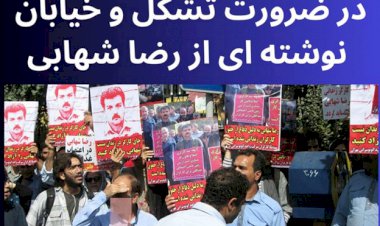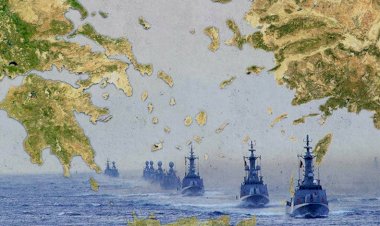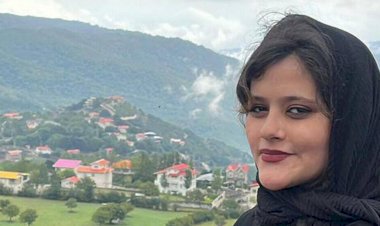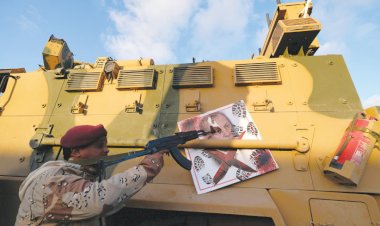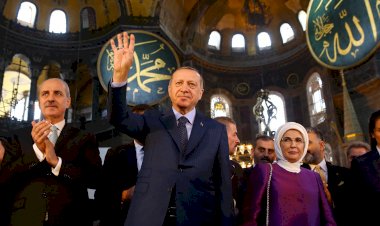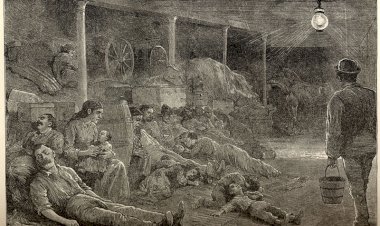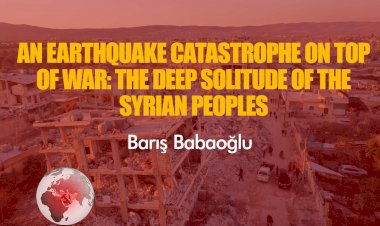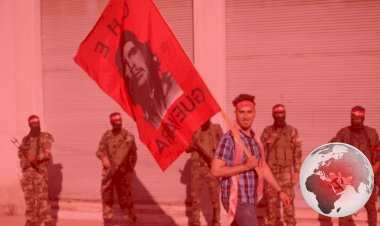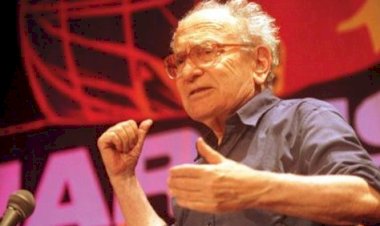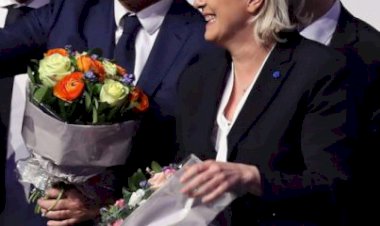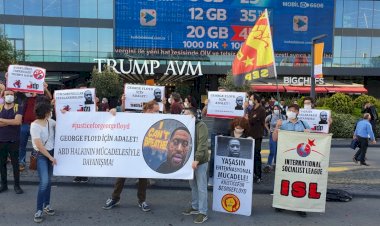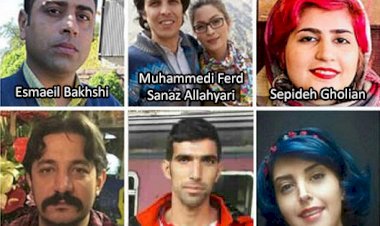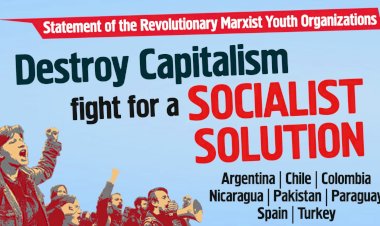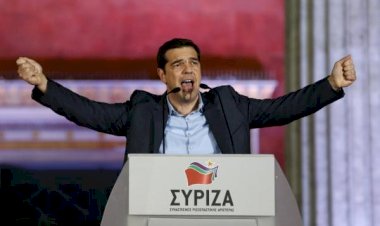The Winners of the New Middle East
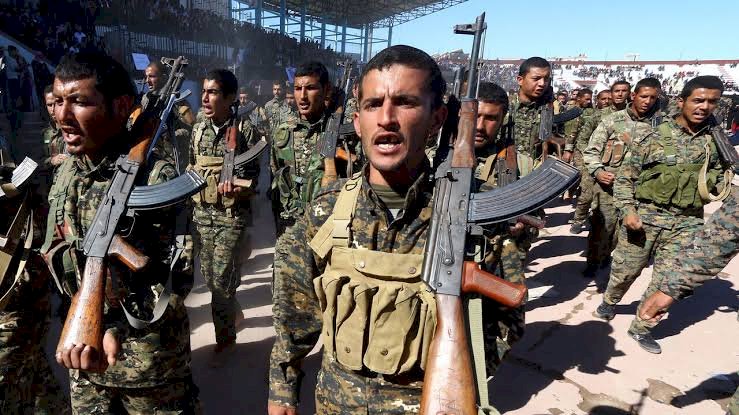
Great wars bear great outcomes. The result of the great showdown that began after the attacks led by Hamas on October 7 has turned all balances on their heads. While the large bombardment campaign on Yemen continues as we speak, Netanyahu is announcing with arrogant self-confidence that they will hunt down the Houthi leaders one by one. One of the greatest reshuffling of cards in the history of the Middle East is taking place right before our eyes. While the US-Israel bloc is pursuing new victories, the Iran-Russia bloc has suffered a great defeat. Russia has been virtually expelled from the Middle East and the Mediterranean. Iran has fallen into a much more difficult situation. Another NATO power, Turkey, has become part of the US-Israel partnership in the regime change in Syria and got its place on the winners list. On the other hand, there are no forces within all these equations that will unite workers of different ethnic origins and sects against the imperialist-capitalist system. But this does not mean that it will be like this in the future. Let's consider the situation through the actors.
Israel Won Big!
Israel, which has always found the full support of imperialism behind it, is a state that has fed off, grew stronger with and expanded off of wars. In this latest war, it has gained an overwhelming advantage over its enemies. The US-Israel alliance has crippled the alliance that Iran calls the “Axis of Resistance”. It has carried out previously unimaginable destruction in Gaza. Hamas and other Palestinian forces have not been destroyed, but they have been weakened strategically. The process of suffocating Palestinians by fanatic settlers in the West Bank has become a very simple matter. The fact that foreign aid to Palestine will continue to decrease has greatly reduced the future military capacity of the Palestinian resistance.
Hezbollah was Iran’s strongest proxy force in the region. Hezbollah’s great loss of power in Lebanon meant a heavy blow to one of Israel’s greatest threats on its northern border. Hezbollah’s financial and military support was largely dependent on Iran, so the decline of Iran’s influence in the region greatly weakened Hezbollah’s capacity, which lost all of its governing bodies and thousands of cadres.
The collapse of the Assad/Baath regime meant that Israel defeated its 80-year-old enemy. The fall of Syria, which we can call the birthplace and even the heart of Arab nationalism, is a historical event for Israel. Indeed, Israel immediately took control of the strategic Golan Heights and Mount Hermon overlooking Damascus. They do not hide their intentions of being there permanently and even establishing military bases in these regions.
Israel is now in a much stronger position in relations with other Arab countries in the region (especially countries such as Saudi Arabia and the United Arab Emirates). These monarchies were already collaborative, but fear is sometimes the most important tool for keeping allies. The US-Israel partnership made this power and fear felt strongly during this period. The weakening of Iran and its allies provided Israel with opportunities to establish regional hegemony.
This latest war strengthened the US-Israel partnership. It was especially important for the US that Israel’s “permanent war” strategy paid off. It was good for Washington that the civilian massacre in Gaza was forgotten. Trump’s election will also strengthen the Israel-US partnership even more.
Yemen is next for Israel. Breaking Iranian influence in Iraq is the next project. It is no secret to anyone that the ultimate target is Iran. Hard times await Iran. The Mullah regime, which is currently in a major energy crisis, has lost all popular support, and is trying to manage a powder keg. It has so many weak points that we can easily say that the imperialist powers are waiting for the right moment to attack.
AKP is Intoxicated with Victory
It must be admitted that the AKP, which has virtually made itself a shield to protect the jihadists in Idlib, standing against the Russian army on the ground and Syria in the air, has been the main actor that has set the conditions for the current situation in Syria. Otherwise, in the 2020 offensive, Assad and his allies would have finished off the jihadists trapped in Idlib and ended the civil war. However, the jihadists who survived with the support of Turkey have established a petit state in Idlib with the support of the AKP. The gratitude brought by this recent past naturally creates a serious Turkish influence on HTS. However, it is not yet clear whether such a state can be established. For years, and still today, the US has been continuously eliminating radical groups such as ISIS and Hurras al-Din that have the potential to make a leap and divide HTS, thus rendering HTS unrivaled. Apart from this, HTS is being given the role of a playmaker who can keep a moderate and stable Syria together, compatible with the NATO bloc’s interests. HTS leader Colani is happy with this duty, and while he has no legal qualifications, he is handing out candy to everyone as the future state leader of Syria. He does not speak out against Israel, which occupies Syrian territory, tries to maintain good relations with the US, and presents himself as on good terms with Turkey. At this point, the interests of the US and Turkey overlap.
The danger of a new civil war in Syria is certainly not over, but it does not seem possible for a military resistance to rise among the minorities who fear the establishment of an Islamist dictatorship. Although Iran talks about the “Syrian resistance,” it no longer has such power on the ground in Syria. But we will see whether the inevitable power struggle between the different actors of the Islamist front will create a rupture.
On the other hand, those who think that Syria will be a kind of backyard for Turkey or those who are carried away by the spirit of conquest are selling dreams and pursuing populism. It should not be forgotten that the dominant power on the ground is the US. The US has bases in Syria and neighboring countries and aircraft carriers in the surrounding seas. The US is the boss of the east of the Euphrates, which Turkey is most interested in. This is why the Syrian National Army (SNA), which is under the full control of Turkey, could not attack Kobane after Manbij, and the AKP was forced to hit brakes due to warnings from the US. The task of somehow eliminating the SDF has been handed over to the new Syrian state, namely HTS, and negotiations with the U.S. After gaining power, HTS wants to get what it wants without fighting but through negotiations with the SDF.
Apart from the US, many other states, from Israel to the EU, from the Gulf kingdoms to Egypt, will also play ball in Syria. Especially if a new state is to be established in Syria, this will not happen without money. Just think, electricity cannot be supplied to cities in Syria at the moment. Everyone is talking about who will establish a new army and how, but no one knows how such a big bellied construct that will swallow up huge resources will be financed. Turkey, which is barely managing itself in an economic crisis, does not have the economic capacity to get Syria back on its feet on its own. Syria’s oil is only enough for itself. Since Syria does not have money, the tenders for the “reconstruction of Syria” that Turkish contractors are drooling over will also be limited. Naturally, it seems inevitable that powers such as Qatar, the UAE and Saudi Arabia, which have plenty of money, will have a say in the HTS state. In other words, the claims of the AKP troll media that “we will triumph in Syria” are nothing more than a dream.
However, for the AKP, which has realized its dream of praying in the Umayyad Mosque, the “conquest” in Syria is a tremendous asset for domestic politics. Indeed, polls show that the AKP is successfully utilizing the Syria story for its popularity. But we can also very well assume that Syria will soon be forgotten in Turkey, where the minimum wage is only 22 thousand liras a month (which is nearly half of the poverty line). Still, the AKP has another victory card in its hand: the liquidation of the SDF. They are trying to achieve a “conquest” from here and move forward.
Hard Times Ahead for the SDF
Hard days await the SDF because the balance of power has changed sharply against the SDF. First, a new state is being built in Damascus. If a major crisis does not trigger a new civil war, this new state will impose centralization against autonomous, self-governing, federal, etc. formations. The US and Turkey are making efforts to ensure the stability of this new state formation. The frequent praise of Turkey and Erdoğan by Trump and other US officials stems from these overlapping interests. A new Syrian regime, which is compatible with the Western world and its values and of course one that will not pose a threat to Israel's security, is being built under the leadership of Jolani. In this case, the importance of the SDF for the US will have greatly diminished, and the SDF may even become a hindrance for the US. When it is possible to collaborate with Erdoğan in Syria, the presence of the SDF may make things difficult for the US. The fact that Germany's Green Party Foreign Minister Boerbock, who justifies Turkey's security concerns and wants the SDF to disarm is an important sign for NATO policies going forward. Indeed, while statements have come from the HTS front that they will not allow federalism, calls for negotiation and compromise from the SDF have so far remained unanswered. Unless there are developments that change the balances sharply, the pressure from Damascus will be added to Ankara’s pressures, and it seems that the disarmament of the SDF will be added to the agenda with the guidance of the US. The only assurance given to the Kurds by the HTS front is that they will show tolerance to minorities and that there will be no discrimination. It seems that the new administration based on free elections and democratic functioning is not very promising. The establishment of a kind of Islamic state based on a Sunni Arab majority by Damascus is a nightmare for all minorities, as it is for the Kurds. For the Kurds, this nightmare came quickly with the fall of Assad. Under these conditions, the SDF will not want to lay down their weapons, but it will not be possible for them to resist the demands coming from the US. Therefore, they may need to start negotiations with the HTS to discuss the conditions. Moreover, there is a very strong possibility that Trump will say that it is time to withdraw US troops from Syria after he takes office. As we said at the beginning, hard times ahead for the SDF.
And unfortunately, within all these equations, there are forces that are independent of imperialist powers and are willing to unite workers and join the struggle for social equality, in an embryonic state. But this does not mean that it will continue to be so in the future. Changing conditions may bring about the development of new social and political forces in one place or another in the Middle East.




